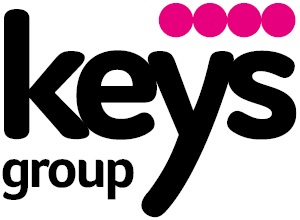“The Danger of a Single Story” – Reflections on EP practice
I recently watched Chimamanda Ngozi Adichie’s “The Danger of a Single Story” Ted Talk, which she gave in July 2009, and couldn’t help but reflect on how relevant such discussions are for Educational Psychology (EP) practice.
The Danger of a Single Story explores the idea of a single narrative that encompasses one aspect of identity and changes the way we view, value and interact with those around us. Whilst this Ted Talk is relevant for everyone, I think perhaps it is especially so for EPs, and other educational, social and healthcare professionals.
Adichie speaks of the power a single story can have, and how –
Power is the ability to not just tell the story of another person, but to make it the definitive story of that person
Adichie
As EPs, we know the importance of inclusive narratives and stories, and of ensuring all voices are heard, and yet, how often do we attend meetings where a child or family is defined by their behaviour, their language, or their physical dis/abilities? How often have we possibly heard the phrase, “oh, Jane’s autistic, so she doesn’t know how to play” or “John’s a naughty boy. He just does that to annoy me”? Perhaps even more worrying – how often have we heard this in front of the child or family? As Adichie highlights, “to insist on only the negative stories is to flatten my experience, and to overlook the many other stories that formed me”.
This is something that as EPs we are trained to explore and reframe. I, like others, ground my psychological practice within positive psychological principles, asking the question “what’s going well?” and exploring strengths, interests and successes throughout my work with an individual. As professionals our input is generally only sought when a concern has been raised, and in these instances, it is easy for these negative single stories to overwhelm and define a young person. Yet, we know that by highlighting and recognising these strengths and successes, or by reframing narratives to view different perspectives, we can support a more positive and holistic view of an individual.
But what if these single stories are part of a wider societal narrative, or beyond or own perceived competence? As I was listening, Adichie’s talk reminded me of the importance of reflective tools such as the Social GRACES (Burnham, 2012), and an exploration into aspects of our own identity, how these can adapt and change over time, and the different levels of power and powerlessness this can afford us in different situations. By understanding our own areas of privilege, power and powerlessness, and exploring how these possible power imbalances can impact on our approach to, and relationship with, the children, young people and families – and even schools – we work with we can perhaps better understand the power that these single stories can have.
Challenging single story narratives
In my service, we have a standing item in our monthly team meetings to discuss any instances where we have challenged this single story narrative. This started as a response to the Black Lives Matter movement, building on our own cultural competence and confidence in helping to facilitate inclusive frameworks and conversations around race and ethnicity in schools. Over time it has evolved to include conversations around all protected characteristics and single story narratives. By ensuring that these conversations are ongoing we can ensure that this single story does not become the only narrative around young people.
What about unvoiced or more subtlety expressed, single stories, though?
Adichie starts her talk with a conversation about books, and the representation of different identities and cultural experiences. Adichie explains that while growing up with British and American books about blonde-haired, blue-eyed children who eat apples and drink ginger beer “stirred [her] imagination” and “opened up new worlds”, it meant that she “did not know that people like me could exist in literature”.
I was in a school recently, and was pleasantly surprised when entering the newly refurbished library, there was a section dedicated to Black History. Reflecting back though, why was this a ‘pleasant surprise’ for me; why isn’t this just something that can be taken for granted?
I live and work in a borough where roughly 75% of the population identifies as White, with 69% of these identifying as White British. The school I was in also has a predominantly White, middle-class catchment area. What does it mean therefore to have dedicated spaces to explore and reflect on different identities? Adichie highlights that the consequence of single stories are that they “rob people of their identity”.
We talk about inclusion in school vocally, but what about the overall school climate? Are there books in the library about Black History? Are there lessons on different family models, be these single parents, same-sex parents or other family configurations? Are there assemblies and resources with inclusive role models, such as authors with Dyslexia, or Paralympic athletes? If not, what narrative is this giving children and young people who don’t perhaps fit the stereotypical single story narrative?
As EPs, we are in a unique position to work with children and young people, as well as their families, schools, and – for some of us – the wider local authority, to highlight and name these single stories when they occur, and ensure that different identities aren’t “robbed” or “flattened”, but voiced and celebrated as parts of not only our local community, but also the global community we are all part of. As Adichie concludes, “when we reject the single story, when we realise that there is never a single story, about any place, we regain a kind of paradise”.




